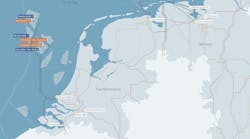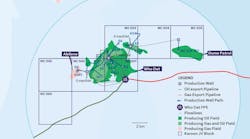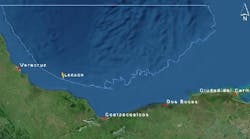THE HAGUE, the Netherlands – Shell has signed two production-sharing contracts with Mauritania’s government for offshore blocks C-10 and C-19, covering exploration and potential future production of hydrocarbons.
“This move represents Shell’s entry into the West African Atlantic Margin exploration basin, which has significant potential,” said Andy Brown, Shell’s Upstream Director.
Following government approvals for the contracts, Shell will establish an office in Nouakchott and begin exploration activities, initially reprocessing and analysis of existing seismic data and acquisition of new data.
The company will operate the exploration program with a 90% interest, with state-owned Société Mauritanienne des Hydrocarbures et de Patrimoine Minier holding the remaining 10%.
Additionally, Shell and the government have a memorandum of understanding to jointly evaluate further offshore exploration opportunities, examine new ways of meeting the country’s domestic energy needs, and build capability in its energy sector.
Blocks C-10 and C-19 are in water depths ranging from 20 to 2,000 m (65-6,561 ft) and cover a total area of around 23,675 sq km (9,140 sq mi). C-10 comprises the former blocks C-10, C-28, and C-29.
Shell has also offered London-based Chariot Oil & Gas a back-in right for 10-20% equity in the C-19 block at a future date, subject to approval by the Mauritanian Ministry of Petroleum, Energy and Mines.
Chariot originally secured an exploration license over the C-19 block in June 2012, subsequently acquiring 3,500 sq km (1,351 sq mi) of 3D seismic data and reprocessing of legacy 2D seismic data.
This led to identification of potentially significant resources in numerous plays, prospects, and leads.
Although the company attracted many interested parties to its farm-out data rooms, low oil prices at the time ultimately acted as a deterrent. In June 2016 the company therefore decided not to enter the first renewal phase which carried a well commitment.
07/23/2018




